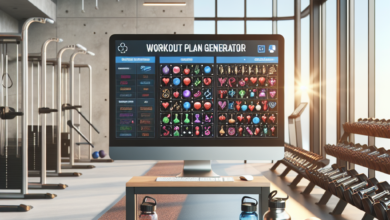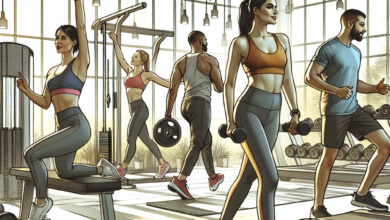Hit a Weight Lifting Plateau? Here’s How to Break Through

As a weight lifter, you work hard for your gains. You literally put your hard work, sweat, and tears into reaching your strength and muscle goals. Now imagine if, despite all your efforts, you simply stopped seeing results. How frustrating! This problem is called plateauing and is more common than you think. Let’s take a closer look.
What Is a Weight Lifting Plateau?
According to fitness experts, plateaus can occur over the course of one to three weeks. At its core, a weight lifting plateau is simply the act of hitting the point where you’re no longer moving along or progressing. You’re hitting the gym, lifting according to plan, and trying your best, yet you can’t seem to build any more muscle. When this happens, it can place weight lifters in a very confusing and frustrating situation. How can things just stop progressing? The truth is, there are a lot of reasons plateaus happen.
Why Do Plateaus Happen?
There are literally tons of reasons weight lifting plateaus happen. Ultimately, however, this common gym frustration happens because muscles are either being underworked or overworked. Plateaus are principally unique to you and your individual workout plans, so the trick to figuring out why you’re plateauing lies in assessing various aspects of your routine. We’ll review some common reasons and areas below that you’ll want to take a look at:
- Not getting enough sleep or having inadequate periods of rest
- Poor or neglected nutrition
- Following an unstructured, too strenuous, or unchanging routine
- Over-training your muscles to the point of stress and exhaustion
- Under-training your muscles by not challenging them enough through workouts

Signs You’ve Hit a Plateau
Knowing the signs of a plateau can help you adjust and move through it a lot quicker so you don’t waste too much time. Here’s what you need to look for:
- Motivation Issues – While weight training is a physical act, it’s also related to how you’re feeling mentally. If you’re suddenly experiencing a lack of motivation, it might be your body telling you something’s up.
- Strength and Performance Reduction – A change or loss of strength while working out can result from damaged or weakened muscles due to strain and mean you might have plateaued.
- Lessened Progress – If you’ve noticed a halt in progress across two workouts, despite increasing repetition or adding extra weight, there’s a chance you’ve plateaued.
- Irritability – One of the worst signs of plateauing is an increase in irritability or aggression. This plateau symptom can be a sign of over-exhaustion.
- Appetite Loss – Have you been experiencing an appetite decrease recently? If your body is tired and overworked, your metabolism might have slowed and caused you to lose your appetite.
- No Gains – Are you working diligently and seeing progress everywhere except for with your muscle mass increases? You might be dealing with a weight lifting plateau.
- Regression – When you notice more than just a slow down in progression and are actually losing muscle and gains, this can be a good indication of a plateau.
If you’ve noticed any of the signs mentioned, don’t worry. There are tried-and-true ways to work through your plateau and keep moving forward.
How to Work Through a Plateau
- Get More Sleep – Sleep is one of those things that can severely impact your weight lifting. If you’re not balancing your workouts with getting enough sleep, you’re almost guaranteed to hit a plateau at some point. If you’re currently working through a weight lifting plateau, try ramping up your sleep schedule!
- Change Things Up – Muscles get used to the way you exercise. It’s important to note this because, when muscles adapt to your weight training, they aren’t going to build mass. Consider changing up your sets and your routine.
- Increase Weights – Sometimes, muscles just need to be challenged. If you haven’t increased your weights recently, it might do the trick!
- Eat to Gain – Your nutrition plays a significant role in weight training. If you aren’t coordinating your diet with your weight training schedule, a plateau might be in your future, whether you like it or not. Make sure you are getting the right nutrients you need for gains and include lots of lean proteins, the right fats, and plenty of healthy carbohydrates.
- Take a Break – At times, it just comes down to your muscles needing to rest! Consider taking a week off from your workouts, resting, and then hitting the gym once again.
How to Avoid a Plateau In the Future
Sometimes plateaus are just unavoidable; however, you can prepare for and take steps to avoid them from happening. Below, we’ll discuss some things you can do to prevent a future weight lifting plateau:
- Lessen Your Sets – There is such a thing as working out too much! Try to focus on working out regularly in shorter sets. This change can help prevent your muscles from becoming overworked.
- Don’t Work Out Too Long – Some experts in weight training recommend training for no more than 45 minutes. Try working out at a hard and fast pace to avoid a plateau. This act can be balanced through keeping your set numbers low and not stretching your weight limits too high. Moderation is vital with workouts.
- Rest, Then Set – If you’re not resting in between your sets, you could be straining your muscles too much. Take two to three minutes in between each set before moving on to the next. Doing this allows your muscles to rest and recover and helps to avoid strain.
- Don’t Overwork Muscles – When weight training, you need to allow your muscles time to recover to avoid damage and possible plateau. Listen to what your muscles are telling you, i.e., if they’re in pain and feel weak, let them rest and focus on another muscle group for a bit.
- Take Breaks – Simply put, working out every day isn’t healthy for you or your muscles. Consider throwing regular break periods into your workout schedules. For instance, you could try working your routine for three weeks, then take one week off. Doing this can help you, and your muscles, feel rested and rejuvenated.



